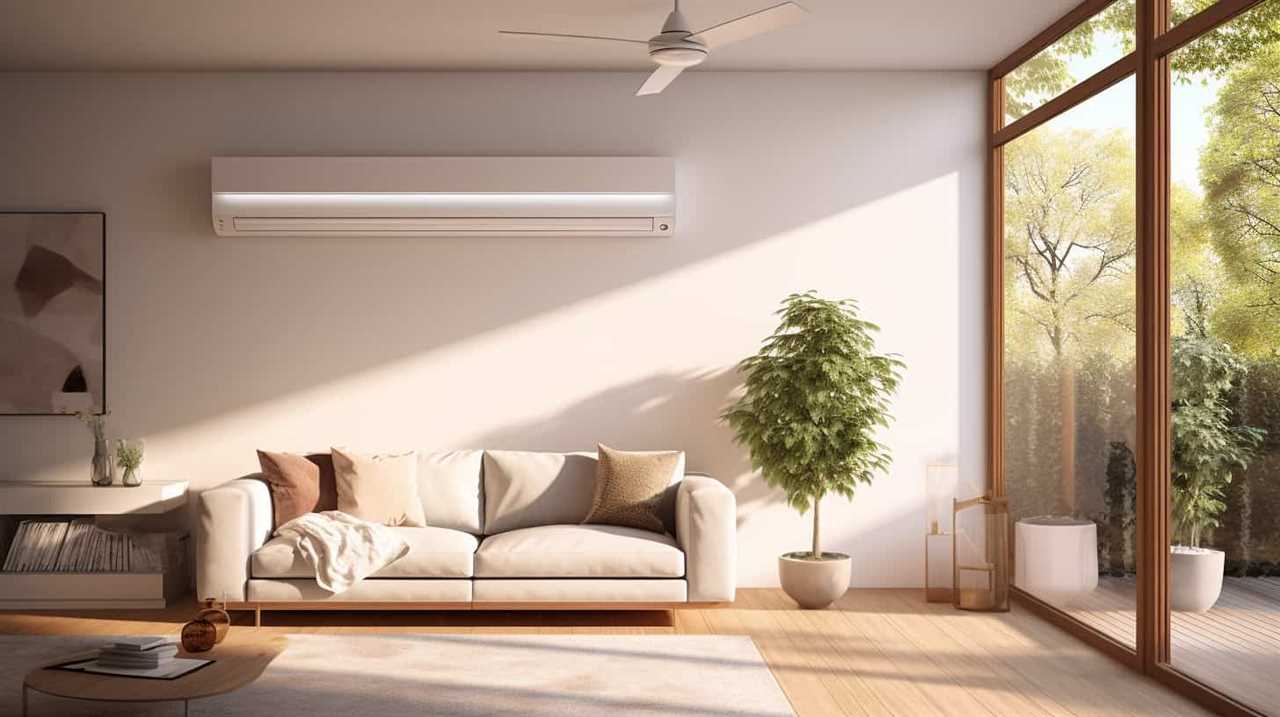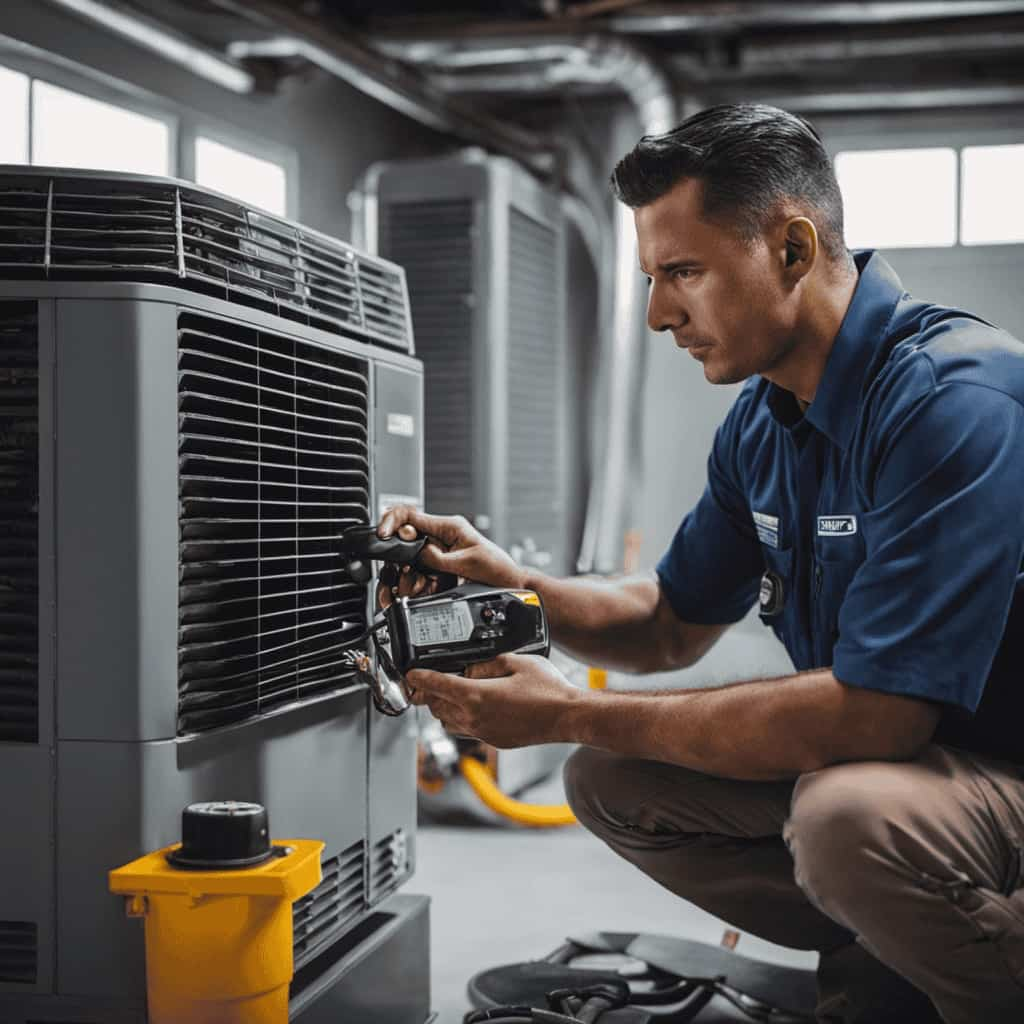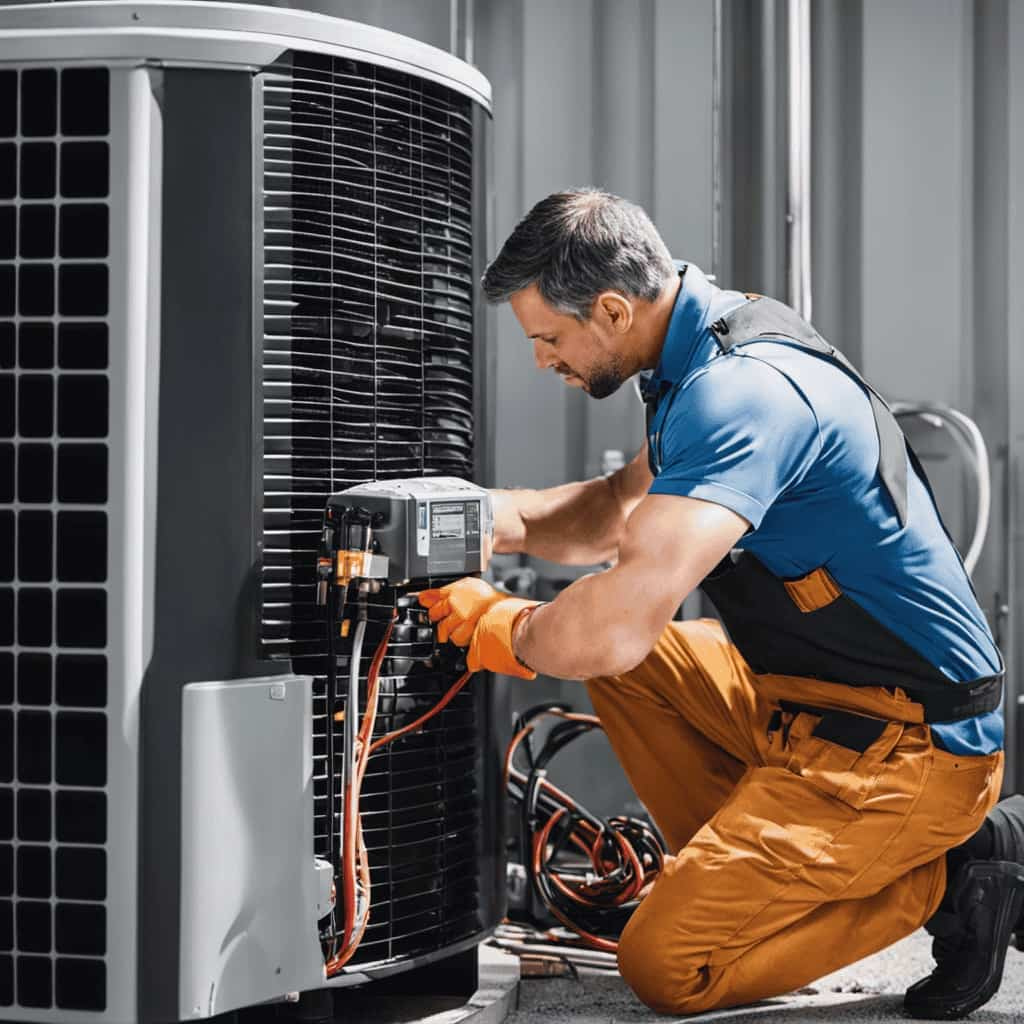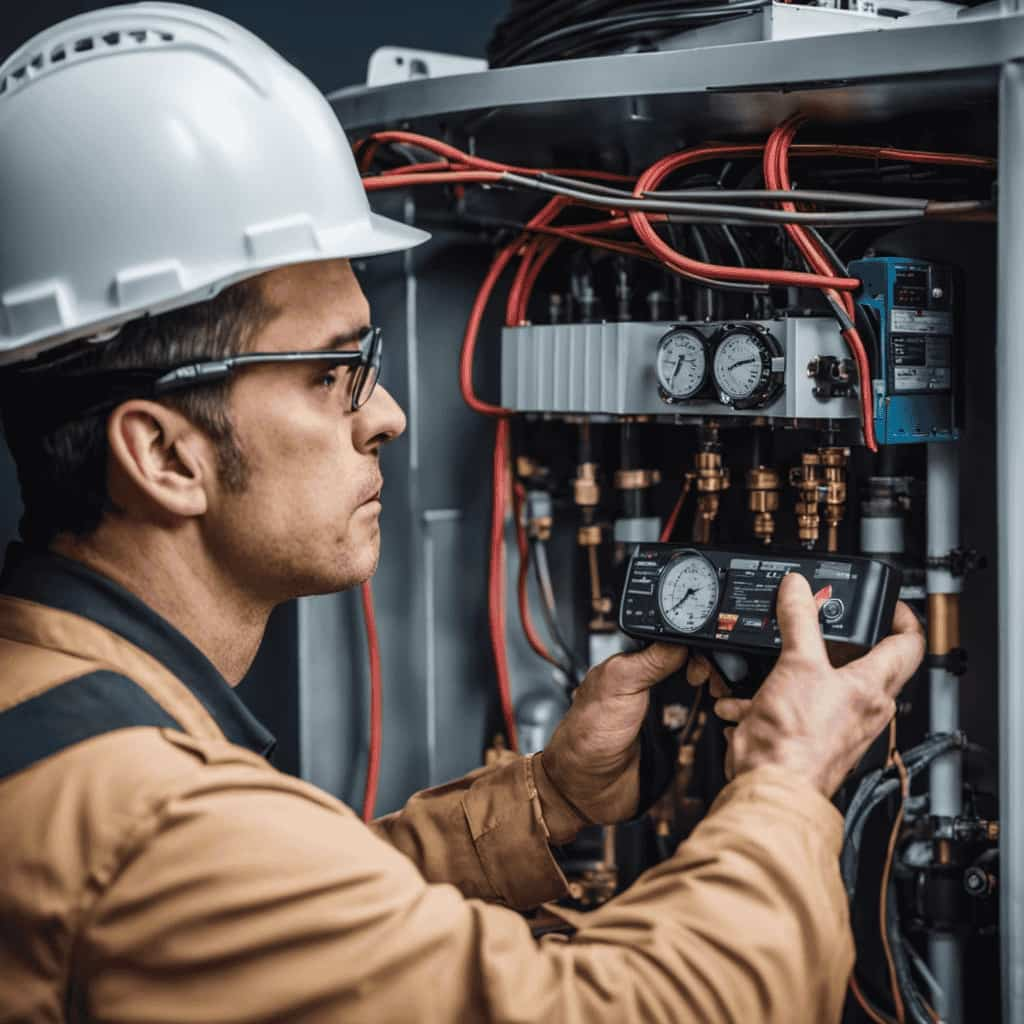Have you ever experienced the frustration of receiving high energy bills? What if there was a solution to escape the cycle of overconsumption?
In this article, we delve into the world of energy efficiency, specifically focusing on the consumption of heat pumps.
By exploring the types of heat pumps, factors affecting energy efficiency, and tips for improvement, we aim to equip you with the knowledge to save both energy and money.
Get ready to unlock the secrets of heat pump consumption!

Key Takeaways
- Geothermal heat pumps consume less electricity compared to traditional systems.
- Ground source heat pumps provide long-term energy savings and lower operational costs.
- COP measures how effectively a heat pump transfers heat from a cold source to a hot source.
- Regular maintenance is crucial for improving energy efficiency.
Types of Heat Pumps and Their Electricity Usage
Now let’s delve into the different types of heat pumps and how they consume electricity.
Geothermal heat pumps are highly efficient systems that tap into the Earth’s natural heat to provide heating and cooling. These pumps use the stable temperature of the ground to transfer heat, which reduces the amount of energy needed to maintain comfortable indoor temperatures. Geothermal heat pumps consume less electricity compared to traditional heating and cooling systems, resulting in significant energy savings.
Hybrid heat pumps, on the other hand, combine the benefits of both electric and gas-powered systems. These versatile pumps can switch between using electricity and natural gas, depending on the demand and cost of each energy source. By utilizing the most efficient energy option at any given time, hybrid heat pumps optimize energy consumption and offer greater flexibility to users.
Factors Affecting Heat Pump Energy Efficiency
The factors that affect the energy efficiency of heat pumps include the size of the system, insulation levels, and the temperature differential.

-
Size of the system: A properly sized heat pump is essential for optimal efficiency. If the system is too small, it may struggle to meet the heating or cooling demand, leading to increased energy consumption. On the other hand, an oversized system may cycle on and off frequently, wasting energy.
-
Insulation levels: Proper insulation plays a crucial role in heat pump efficiency. Well-insulated homes retain heat better, reducing the workload on the heat pump. Inadequate insulation can result in heat loss, causing the heat pump to work harder and consume more energy.
-
Temperature differential: The temperature difference between the heat source (air or ground) and the desired indoor temperature affects the efficiency of heat pumps. Extreme temperature differentials can put additional strain on the system, impacting its energy efficiency.
Heat pump maintenance and weather conditions also have a significant impact on energy efficiency.

Now, let’s delve into comparing the energy consumption of air source and ground source heat pumps.
Comparing Energy Consumption of Air Source and Ground Source Heat Pumps
We can compare the energy consumption of air source and ground source heat pumps to determine their efficiency. When it comes to geothermal heat pump benefits, ground source heat pumps have the advantage of utilizing the constant temperature of the ground, allowing for higher efficiency and lower energy consumption.
While air source heat pumps are easier to install and have lower upfront costs, they’re also more affected by outside air temperatures, resulting in higher energy consumption during extreme weather conditions.
In terms of cost comparison of heat pump systems, ground source heat pumps may have higher upfront costs due to the installation of the underground loop system, but they provide long-term energy savings and lower operational costs. This makes them a more cost-effective option in the long run.

Transitioning into the next section about understanding the coefficient of performance (COP) in heat pumps, it’s important to delve into the technical aspects that determine the efficiency of these systems.
Understanding Coefficient of Performance (COP) in Heat Pumps
To fully comprehend the efficiency of heat pumps, we must understand the coefficient of performance (COP) and its role in determining energy efficiency. The COP is a measure of how effectively a heat pump can transfer heat from a cold source to a hot source.
Here are three key points to help visualize the concept of COP:
- COP is calculated by dividing the heat output by the electrical power input of the heat pump.
- A COP of 3 means that for every unit of electricity consumed, the heat pump produces three units of heat energy.
- Higher COP values indicate greater efficiency and energy savings.
Understanding the COP is crucial when evaluating heat pump efficiency. By calculating the COP, we can accurately gauge the effectiveness of a heat pump in terms of energy consumption and cost savings.

Tips for Improving Heat Pump Energy Efficiency
In order to maximize heat pump energy efficiency, we can implement various tips and strategies that focus on reducing energy consumption and optimizing performance.
One effective tip is to integrate a smart thermostat into your heat pump system. A smart thermostat allows you to control and schedule the temperature settings of your heat pump remotely, ensuring that it operates at optimal levels and minimizes unnecessary energy usage.
Additionally, regular maintenance is crucial for improving energy efficiency. Following a maintenance checklist that includes tasks such as cleaning or replacing air filters, checking refrigerant levels, and inspecting the outdoor unit can help identify and resolve any issues that may be affecting the heat pump’s efficiency.
Frequently Asked Questions
What Are the Different Types of Refrigerants Used in Heat Pumps and How Do They Impact Energy Efficiency?
There are different refrigerant options used in heat pumps, and they impact energy efficiency. The choice of refrigerant can have environmental consequences, so it’s important to consider the environmental impact when selecting a heat pump.

How Does the Size and Layout of My Home Affect the Energy Consumption of a Heat Pump?
The size and layout of our home greatly impact the energy consumption of a heat pump. A well-designed layout with proper insulation and zoning can enhance energy efficiency, while a larger home may require a larger heat pump, resulting in higher energy consumption.
Are There Any Government Incentives or Tax Credits Available for Installing an Energy-Efficient Heat Pump?
Yes, there are government incentives and tax credits available for installing an energy-efficient heat pump. These incentives can help offset the cost of the installation and make it more affordable for homeowners.
Can I Use a Heat Pump for Both Heating and Cooling My Home?
Yes, we can use a heat pump for both heating and cooling our home. Heat pump efficiency and the advantages of using a heat pump for heating and cooling make it a versatile and cost-effective option.
What Maintenance Tasks Should I Perform Regularly to Ensure My Heat Pump Operates at Optimal Efficiency?
Regular maintenance tasks are crucial for ensuring our heat pump operates at optimal efficiency. By performing tasks such as cleaning filters, checking refrigerant levels, and inspecting electrical connections, we can maximize energy savings and enjoy a comfortable home.

Conclusion
In conclusion, understanding the energy consumption of heat pumps is crucial for maximizing their efficiency. By considering factors such as the type of heat pump and the coefficient of performance, we can make informed decisions to reduce energy usage.
Just like a well-oiled machine, a well-maintained and optimized heat pump can be as efficient as a finely tuned engine, saving us both energy and money.









